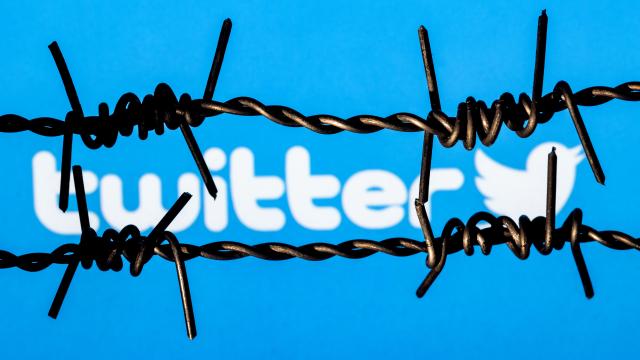Rootin’ tootin’ Texas Republicans want to shoot off whatever comes to mind on social media, whether or not they violate the platforms’ user agreements. On Wednesday, conservatives gained a victory in the ongoing duel with social media companies, letting them sue platforms that block their accounts.
Last year, Texas passed a law that let aggrieved users sue companies like Twitter and Facebook for having their accounts suspended or content blocked, calling these sites “central public forums.” But after some of those platforms fought back, Federal judges put a hold on the Texas law back in December. Wednesday, judges on the the conservative-leaning 5th circuit court appeals lifted the court’s temporary injunction on the law in a 2-1 decision.
H.B. 20, or the Freedom From Censorship Act, ostensibly gives users the right to sue large social media companies for locking their accounts or otherwise barring their posted content, even if that content defies the platform’s user agreement. The Texas law applies to any users within Texas, as well as any business that operates in Texas. It also applies to any user who “shares or receives content on a social media platform in this state,” which could potentially apply to a broad range of users.
Social media companies were, of course, antagonized when the original law was signed, and last September the social media-backed trade groups Computer and Communications Industry Association and NetChoice sued, claiming the law would hamstring platforms’ ability to limit hate speech and misinformation, a violation of the companies’ first amendment rights.
H.B. 20 defines any website or app “that is open to the public, allows a user to create an account, and enables users to communicate with other users for the primary purpose of posting information, comments, messages, or images,” as one of these examples of social media that are applicable under the law.
The site must have more than 50 million active users to be subject to the law, so that excludes the right-wing darling Truth Social, which Forbes estimated has perhaps 2 million active users by way of how many users are following former president Donald Trump. Truth Social has restricted users even before they posted a single piece of content. Similarly, Parler, the so-called “free speech” platform, only has 16 million registered users, according to Earthweb.
As targeted and broad as the law is toward specific social media companies, the panel of judges who made the ruling also seemed to be just as confounded by what social media really is. During the hearing Tuesday, Judge Edith Jones told trade group lawyers that “your clients are internet providers… They are not websites.”
As pointed out by Protocol, these social media sites and apps are not internet providers, and even then, internet service providers are not currently considered common carriers in the same way phone companies are.
In a tweeted statement, NetChoice’s policy counsel Chris Marchese said H.B. 20 is “constitutionally rotten from top to bottom,” and that they plan to appeal.
Similarly in a separate statement, CCIA President Matthew Schruers said “No option is off the table. We will do what is necessary to ensure that the free market, not government fiat, decides what speech digital services do and do not disseminate.”
Current federal law called Section 230 restricts people from suing websites such as social media for the content they post on their platforms. Some Democrats and Republicans have called to either nix or update 230, though for very different reasons. The debate over whether social media should be classified as a “public square” is ongoing at Twitter after Tesla CEO Elon Musk announced his intent to buy the platform. He has already announced he would reinstate Trump’s account if the deal goes through.
The Texas law was originally sponsored by Republican State Sen. Bryan Hughes. Hughes’ office did not return Gizmodo’s request for comment.
Courts nationwide have not been in agreement on whether social media truly constitutes a public forum. A similar Florida law that allows users to sue social media, signed by America’s other big-name, anti-“social” Republican governor Ron DeSantis has remained under judicial heel. A judge also dismissed Trump’s lawsuit over his ongoing ban on Twitter.
